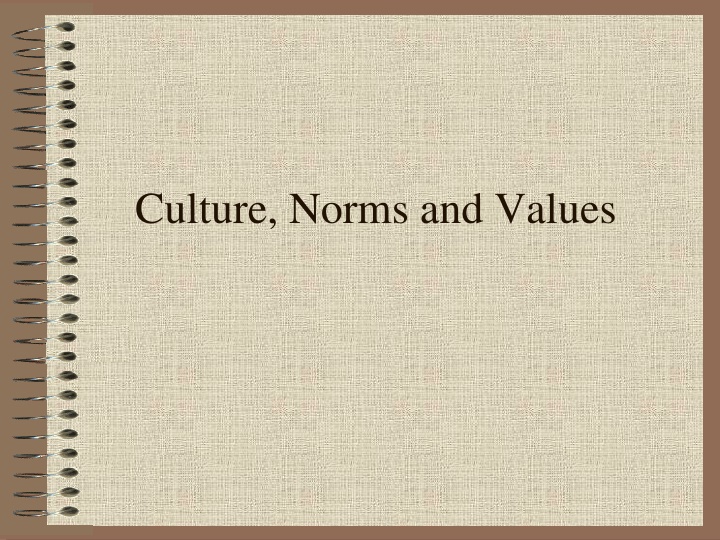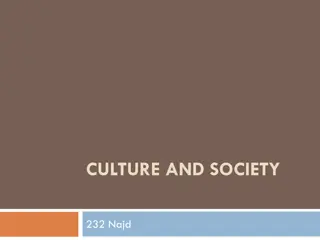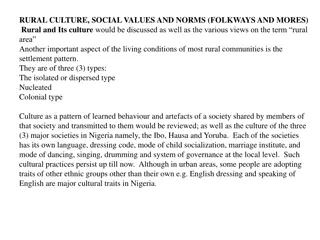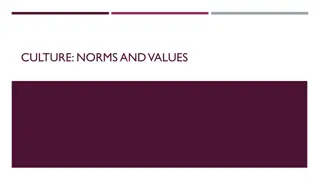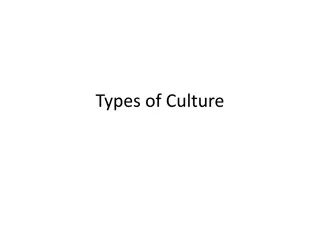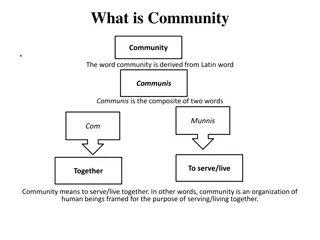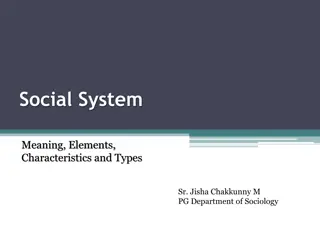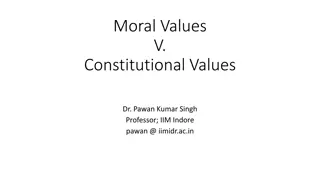Culture, Norms and Values
Dive into the intricate tapestry of cultural dynamics, exploring the implicit and explicit norms, as well as the underlying values that shape societies worldwide. Gain insights into the complexities of societal behaviors, traditions, and belief systems, and their impact on individuals and communities. Unravel the delicate balance between tradition and modernity, as well as the evolution of norms over time. Understand the significance of cultural diversity and the rich tapestry it weaves in the global landscape.
Download Presentation

Please find below an Image/Link to download the presentation.
The content on the website is provided AS IS for your information and personal use only. It may not be sold, licensed, or shared on other websites without obtaining consent from the author.If you encounter any issues during the download, it is possible that the publisher has removed the file from their server.
You are allowed to download the files provided on this website for personal or commercial use, subject to the condition that they are used lawfully. All files are the property of their respective owners.
The content on the website is provided AS IS for your information and personal use only. It may not be sold, licensed, or shared on other websites without obtaining consent from the author.
E N D
Presentation Transcript
Culture Every individual has to learn a way of life, in sociological terms it must learn the culture of the society (Eg. New born baby) According to Ralph Linton, The culture of society is the way of life of its members, the collection of ideas and habits which they learn, share and transmit from generation to generation.
Culture is a design for living held by members of particular Kluckohn) Human has no instincts to direct their actions, their behaviour must be based on guidelines which are learned Without a shared culture, members of society would be unable to communicate and cooperate, and disorder would be result society. (Clyde
Two essential qualities: a) It is learned and, b) It is shared Culture defines accepted ways of behaving for members of a particular society For effective operation of society, these guidelines must be shared by its members
Characteristics of Culture It is shared It is a group product It is learned It is Symbolic It is patterned and integrated Culture is adaptive Culture is compulsory Culture is dynamic Culture is diverse It is cumulative: generation to generation
Norms Every culture has large number of guidelines which direct conduct in particular situations, such guidelines are known as NORMS A norm is a specific guide to action which defines acceptable and appropriate behaviour in particular situations Norms are enforced by positive and negative sanctions, that is rewards and punishments Norms define appropriate behaviour in specific situations , maintaining social order and acceptable
Values A value is a belief that something is good and desirable It defines what is important, worthwhile and worth striving Values are one's judgments Values vary from society to society Many norms can be seen as reflection of values
Norms are rules for behaviour in specific situations, while values identify what should be judged as good or evil Shared norms and values are essential for the ordered, stable human society
